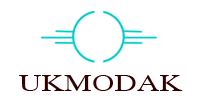What is PHP
PHP is an open-source, interpreted, and object-oriented scripting language that can be executed at the server-side. PHP is well suited for web development. Therefore, it is used to develop web applications (an application that executes on the server and generates the dynamic page.).
PHP was created by Rasmus Lerdorf in 1994 but appeared in the market in 1995. PHP 7.4.0 is the latest version of PHP, which was released on 28 November. Some important points need to be noticed about PHP are as followed:
- PHP stands for Hypertext Preprocessor.
- PHP is an interpreted language, i.e., there is no need for compilation.
- PHP is faster than other scripting languages, for example, ASP and JSP.
- PHP is a server-side scripting language, which is used to manage the dynamic content of the website.
- PHP can be embedded into HTML
- PHP is an object-oriented language.
- PHP is an open-source scripting language
- PHP is simple and easy to learn language.
The Request Life-cycle
Step 1
The user enters `http://laravel.com` into their browser and taps/hits 'enter'.
Step 2
After the user has tapped/hit 'enter', the browser sends the page request over the Internet to the web server.
Step 3
The web server gets the request and analyzes the request information. Apache realizes that we didn't specify a file, so it looks for a directory index and finds `index.php`.
Step 4
Since Apache knows to send files that end with the `.php` file extension to the PHP interpreter, it asks PHP to execute the file.
Step 5
In this step, PHP is executing the code contained in the `index.php` file from the request. During this step, PHP may interact with databases, the file system or make external API calls, amongst other things.
Step 6
After PHP has finished executing the `index.php` file, it sends the output back to Apache.
Step 7
Apache receives the output from PHP and sends it back over the Internet to a user's web browser. This is called the `web response`.
Step 8
The user's web browser receives the response from the server, and renders the web page on a computer or device.
PHP Features
PHP is very popular language because of its simplicity and open source. There are some important features of PHP given below:
Performance:
PHP script is executed much faster than those scripts which are written in other languages such as JSP and ASP. PHP uses its own memory, so the server workload and loading time is automatically reduced, which results in faster processing speed and better performance.
Open Source:
PHP source code and software are freely available on the web. You can develop all the versions of PHP according to your requirement without paying any cost. All its components are free to download and use.
Familiarity with syntax:
PHP has easily understandable syntax. Programmers are comfortable coding with it.
Embedded:
PHP code can be easily embedded within HTML tags and script.
Platform Independent:
PHP is available for WINDOWS, MAC, LINUX & UNIX operating system. A PHP application developed in one OS can be easily executed in other OS also.
Database Support:
PHP supports all the leading databases such as MySQL, SQLite, ODBC, etc.
Error Reporting -
PHP has predefined error reporting constants to generate an error notice or warning at runtime. E.g., E_ERROR, E_WARNING, E_STRICT, E_PARSE.
Loosely Typed Language:
PHP allows us to use a variable without declaring its datatype. It will be taken automatically at the time of execution based on the type of data it contains on its value.
Web servers Support:
PHP is compatible with almost all local servers used today like Apache, Netscape, Microsoft IIS, etc.
Security:
PHP is a secure language to develop the website. It consists of multiple layers of security to prevent threads and malicious attacks.
Control:
Different programming languages require long script or code, whereas PHP can do the same work in a few lines of code. It has maximum control over the websites like you can make changes easily whenever you want.
A Helpful PHP Community:
It has a large community of developers who regularly updates documentation, tutorials, online help, and FAQs. Learning PHP from the communities is one of the significant benefits.
Web Development
PHP is widely used in web development nowadays. PHP can develop dynamic websites easily. But you must have the basic the knowledge of following technologies for web development as well.
- HTML
- CSS
- JavaScript
- Ajax
- XML and JSON
- jQuery

